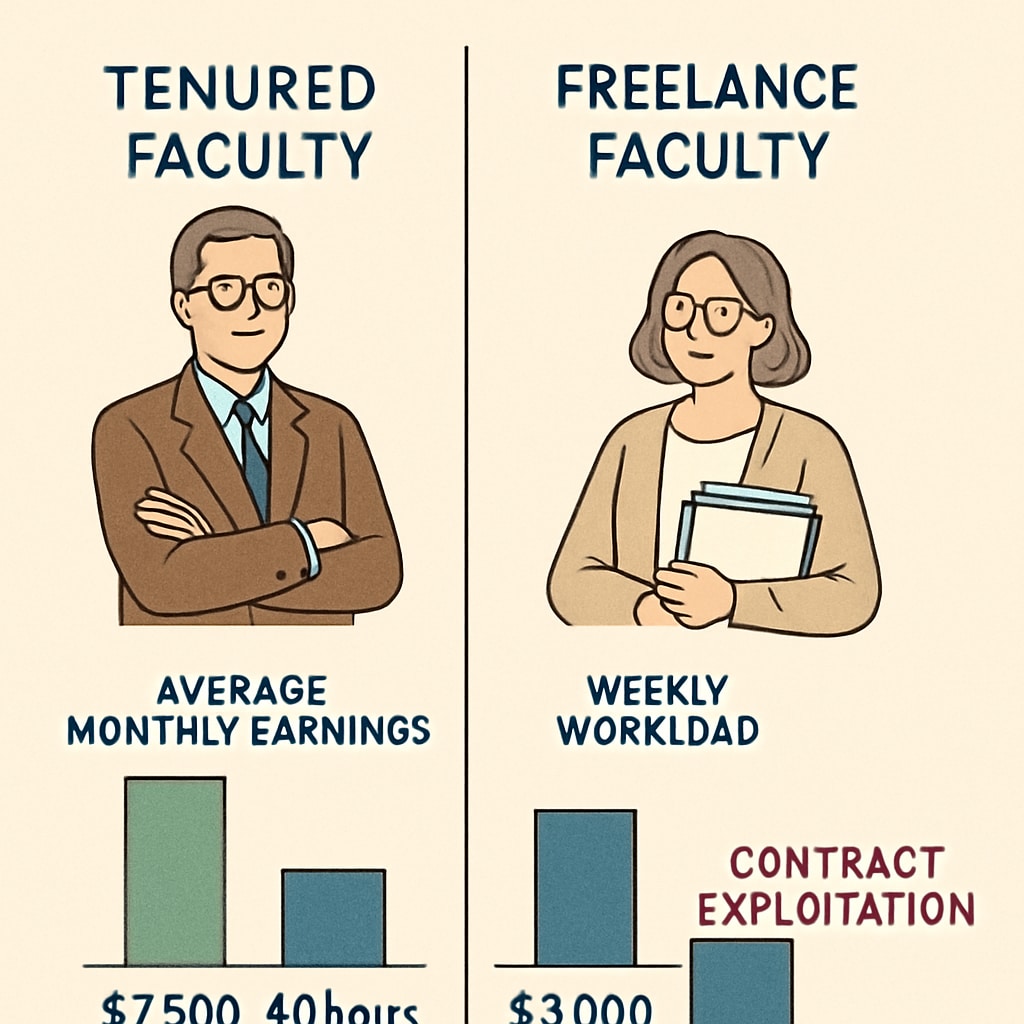Academic publishing pressure, contract exploitation, and the precarious position of freelance faculty are becoming increasingly intertwined in higher education. Across U.S. universities, freelance faculty members are often burdened with the expectation to produce research publications to meet accreditation requirements, such as those set by the Association to Advance Collegiate Schools of Business (AACSB). This demand frequently comes without additional pay or sufficient institutional support, raising critical concerns about academic ethics and labor rights in modern academia.
How Academic Publishing Pressure Exploits Freelance Faculty
Freelance faculty, also known as adjunct or contingent professors, are hired on short-term contracts with limited benefits. Despite their precarious employment status, these educators are often tasked with meeting the same academic publishing standards as tenured professors. For institutions seeking AACSB accreditation, research output from faculty is a key criterion. As a result, freelance faculty are pressured to contribute publications to bolster the university’s accreditation profile.
Unlike their tenured counterparts, freelance faculty typically receive no additional compensation for research activities. They are expected to dedicate personal time and resources to produce high-quality academic work. This situation exemplifies a form of contract exploitation, where institutions reap the benefits of faculty publications without offering adequate remuneration or support in return.

The Ethical and Economic Implications of Contract Exploitation
The ethical implications of this dynamic are profound. Universities position themselves as champions of knowledge and education, yet they exploit a vulnerable segment of their workforce to achieve institutional goals. This practice not only undermines the dignity of freelance faculty but also perpetuates a two-tiered system in academia: one where tenured professors enjoy stability and support, while freelance educators are left to bear the burden of uncompensated labor.
Economically, this system benefits institutions at the expense of their faculty. Freelance educators often earn significantly less than tenured professors, with some earning as little as $3,000 per course. When the additional burden of research is imposed, the effective hourly wage of these educators drops even further. This imbalance highlights the growing inequities within the academic labor market.

Moving Toward Equitable Solutions
Addressing this issue requires a multifaceted approach. First, universities must acknowledge the contributions of freelance faculty and provide fair compensation for research activities. This could include dedicated research stipends or reduced teaching loads to allow time for academic work. Second, accreditation bodies like the AACSB should reassess their criteria to ensure they do not inadvertently encourage exploitative practices. Recognizing collaborative research or adjusting publication expectations for freelance educators could help reduce undue pressure.
Finally, freelance faculty must be empowered to advocate for their rights. Unionization efforts and collective bargaining agreements can serve as effective tools for securing better working conditions. For example, organizations like the American Association of University Professors (AAUP) have been instrumental in supporting contingent faculty across the U.S.
As a result of these efforts, the academic community can work toward creating an environment where all educators, regardless of their employment status, are treated with fairness and respect.
Conclusion: Reimagining Academic Labor Practices
In conclusion, the academic publishing pressure placed on freelance faculty highlights systemic issues of contract exploitation within higher education. By demanding research output without providing adequate support or compensation, universities undermine both the ethical foundations of academia and the labor rights of their faculty. It is imperative for institutions, accreditation bodies, and educators to collaborate and address these inequities. Only by valuing the contributions of all faculty members can higher education truly fulfill its mission as a bastion of knowledge and progress.
Readability guidance: This article uses short paragraphs and structured subheadings for clarity. It incorporates lists and external links to enhance engagement while maintaining an active voice and concise sentence structure.


